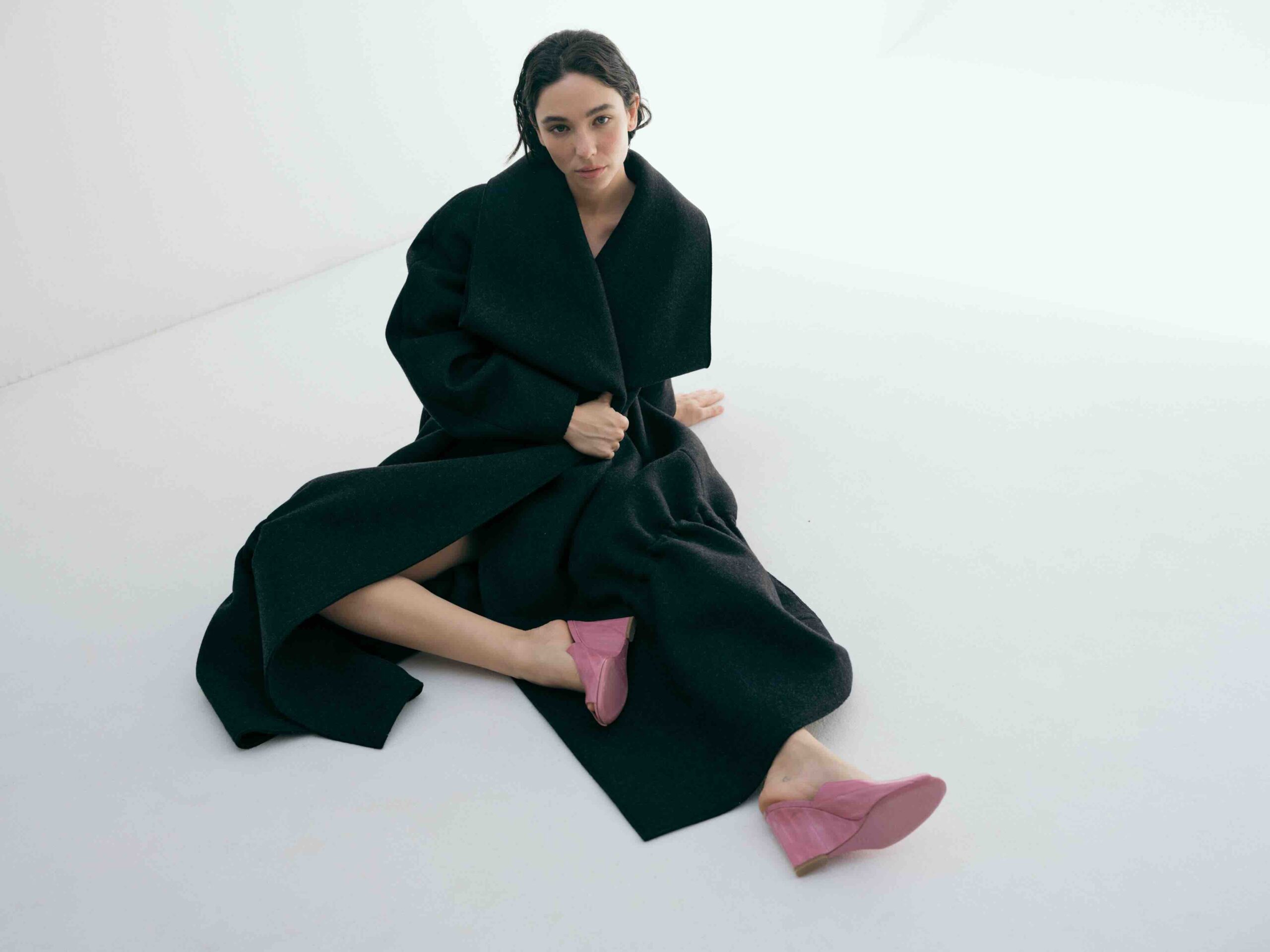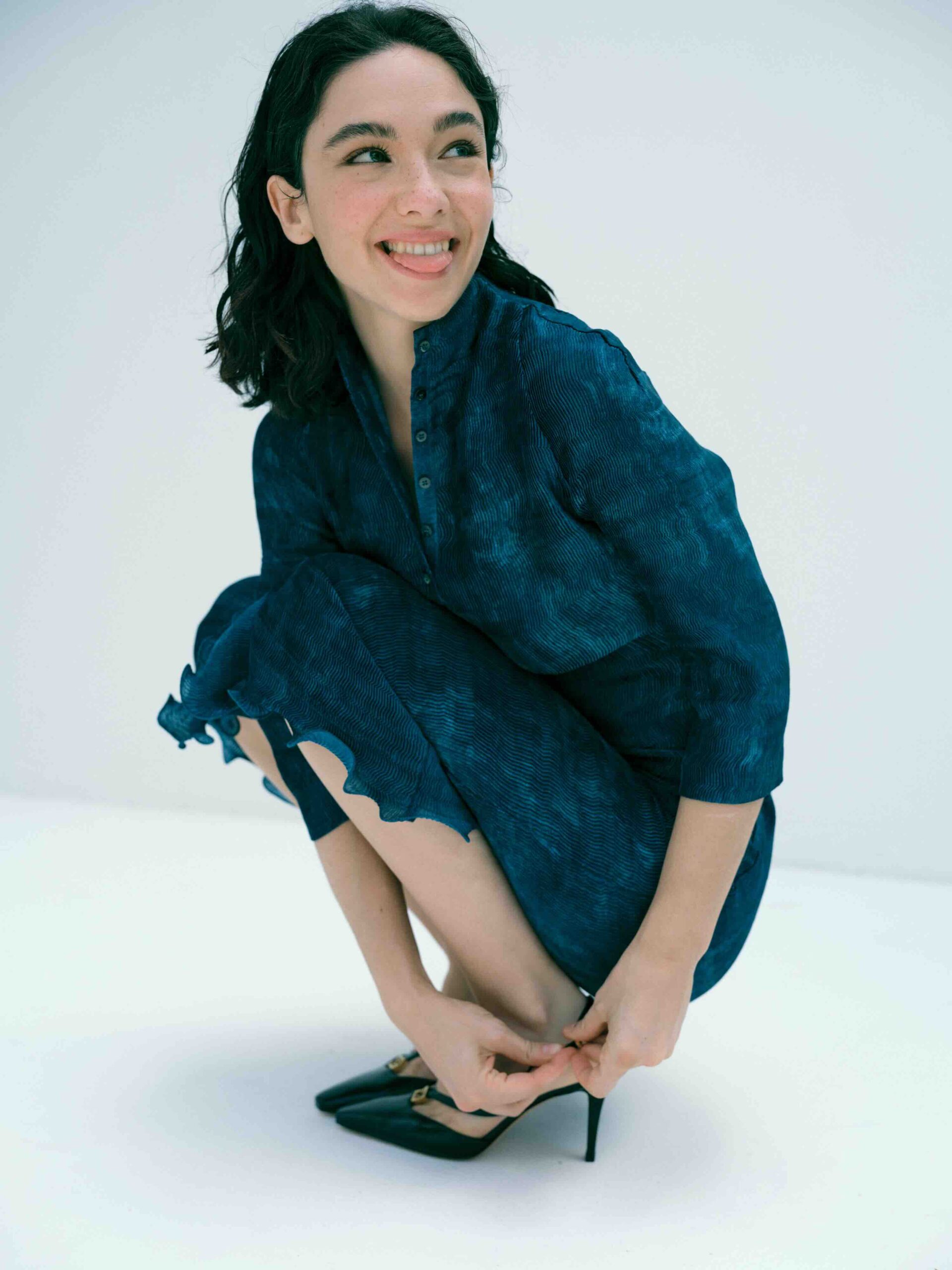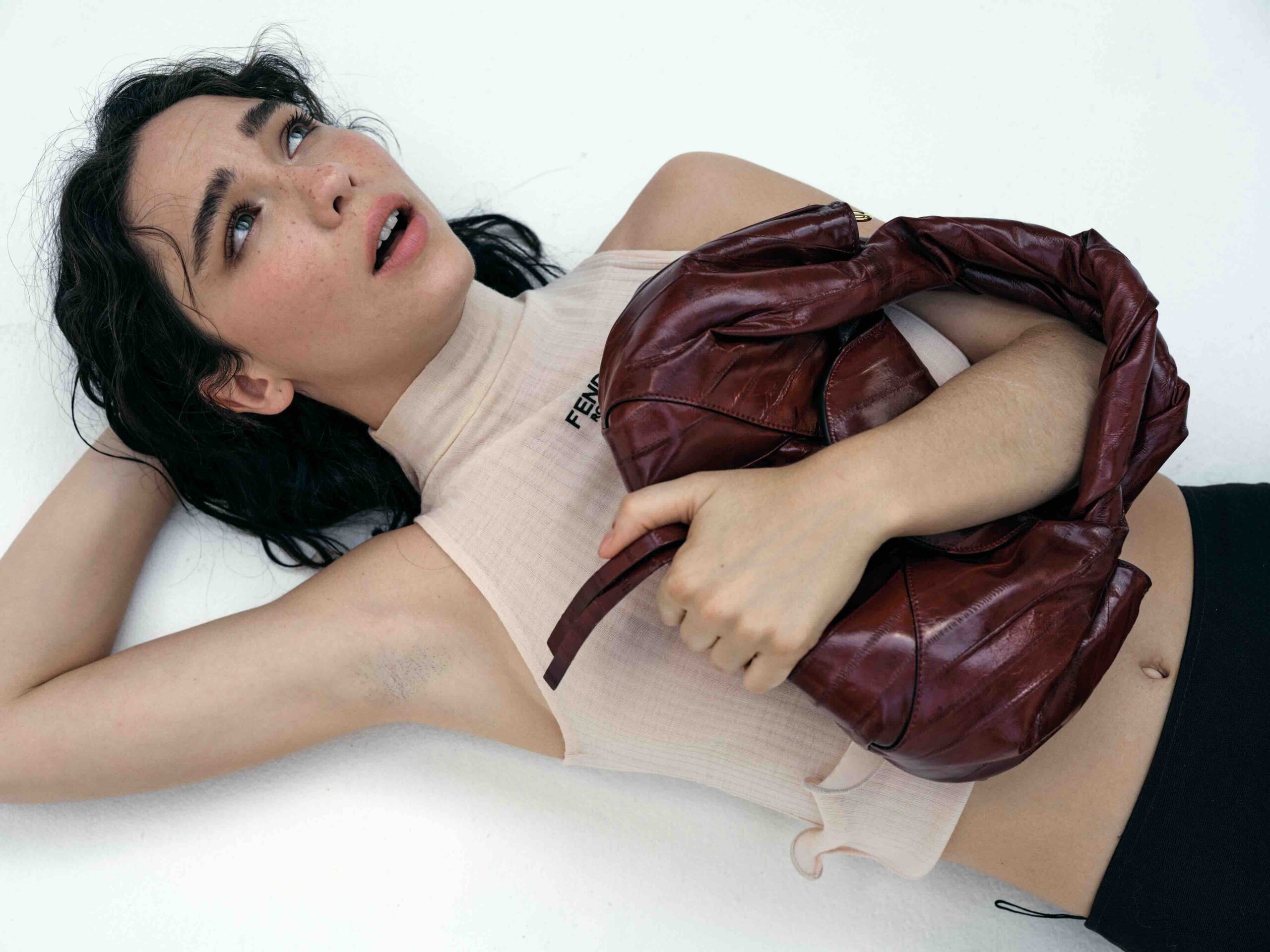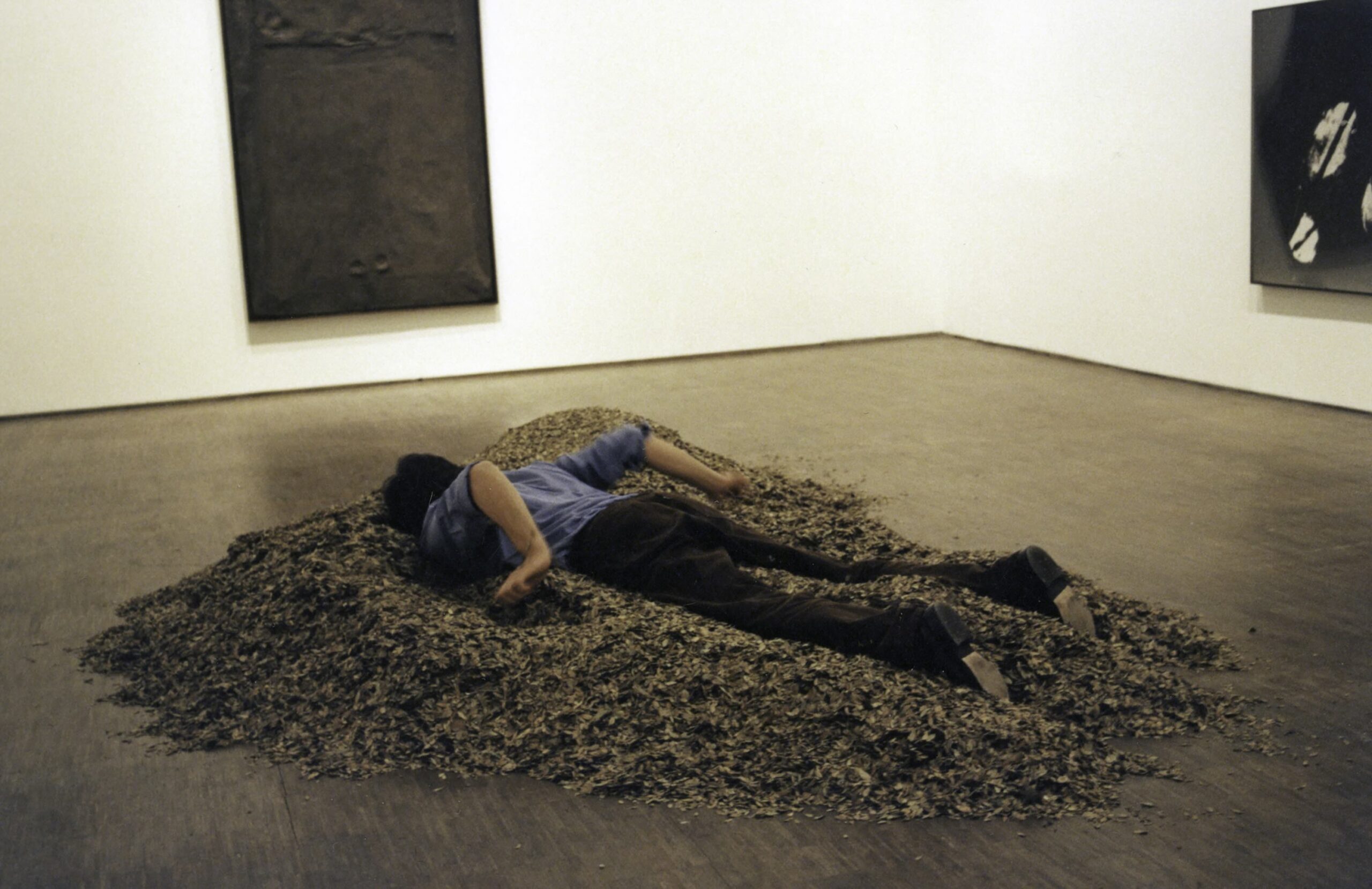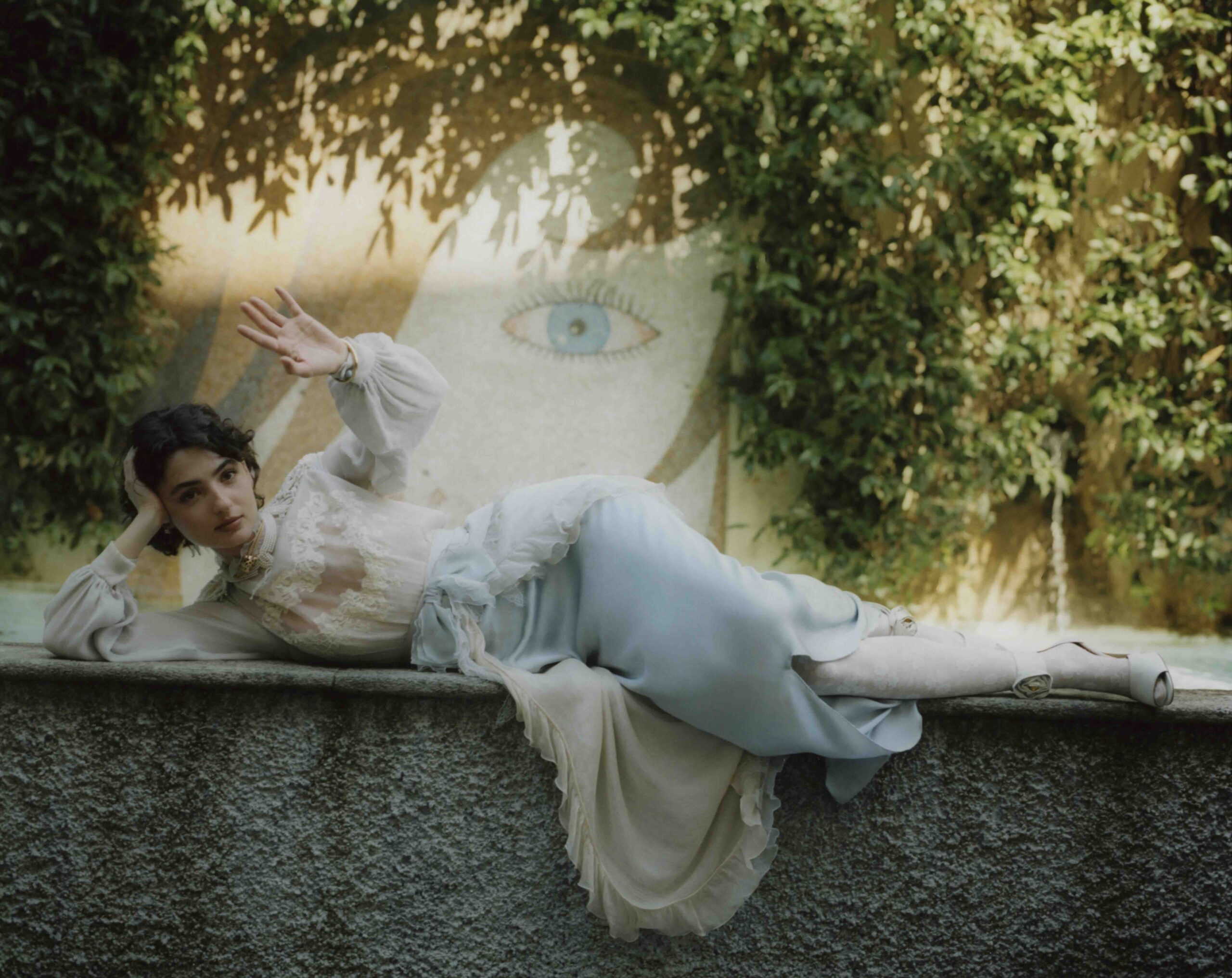Rome, July 26th, 2025
Matilda De Angelis in conversazione con Cecilia Monteleone
Matilda De Angelis doesn’t describe herself as an actress by calling. As a teenager growing up in Bologna, she imagined a very different future—one made of languages and simultaneous translation, a precise, orderly profession. But then came an unexpected casting, and a role in Italian Race. What began, she says, as a way to “put aside a bit of money” turned into something else entirely: a way to explore, to slip into other lives, to move through worlds—both real and internal—that she might never have encountered otherwise. In this conversation, Matilda De Angelis reflects on acting with a mix of clarity and thoughtful irony. There’s a rare kind of self-awareness in her words—especially for someone whose craft involves being looked at. For her, visibility isn’t the point; what matters is choosing how and why to be seen. She thinks of acting as a way to stay close to the chaos, to search, without certainty, for some form of meaning. She moves between sets and stillness, resists overexposure, and protects a space where she can remain imperfect, contradictory, in motion. She doesn’t claim to be technical, yet approaches her work with discipline. She speaks of a “sincere” kind of cinema, of instinct as her guide, of the freedom found in letting go. But above all, she holds onto something increasingly rare: the right not to be defined too soon. The space to stay unfinished. The time to understand who you are—before deciding who to become.
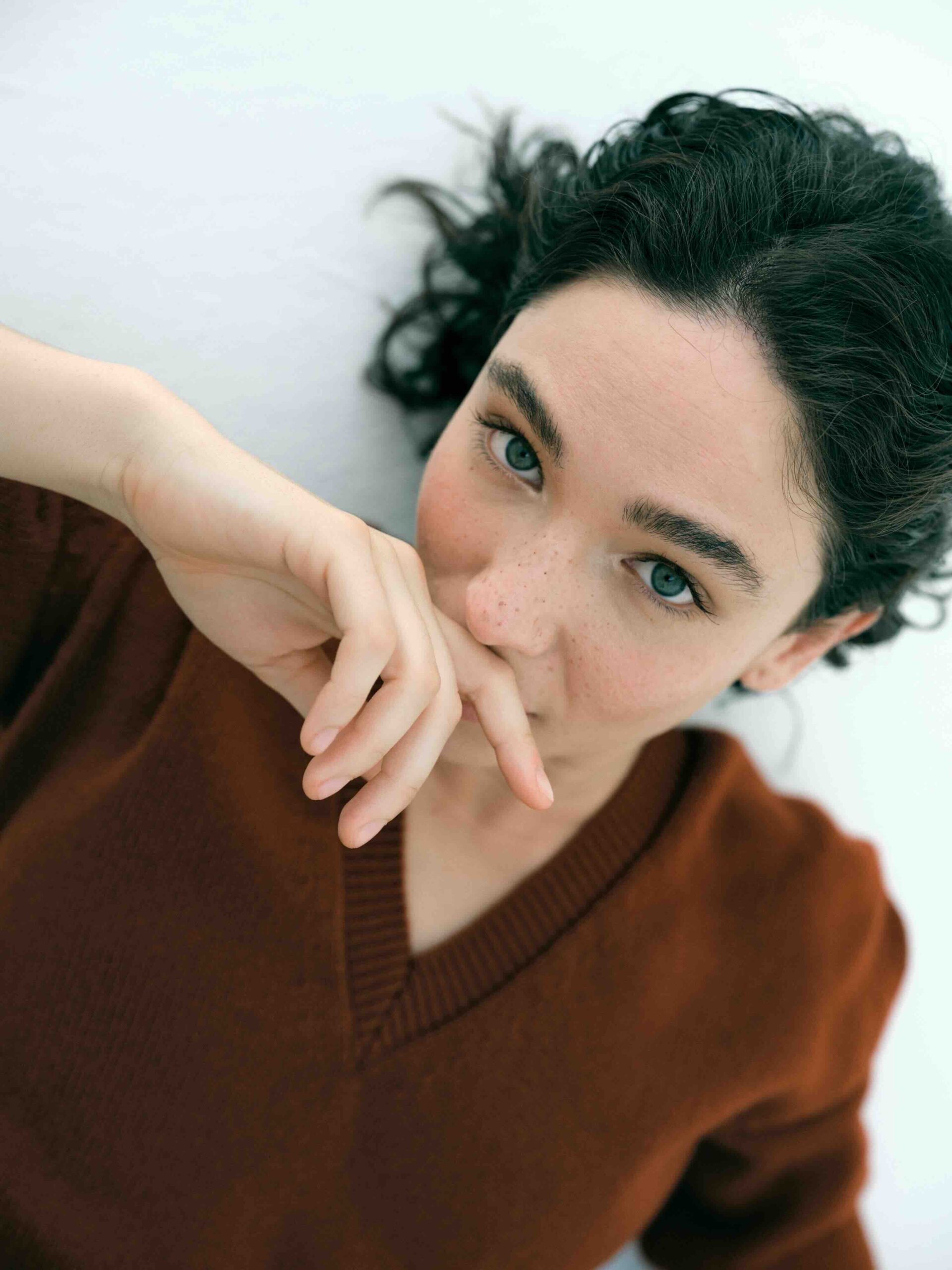
When you were a child, what did you imagine you’d become?
Matilda Acting entered my life eleven years ago, and it still feels hard to believe that much time has passed since the beginning. It was 2014, I had just finished high school, and I was on the set of Italian Race. I thought I’d end up doing something entirely different. At the time, acting was simply a way to save money to go to university—I dreamed of getting a degree in languages, to become a translator or interpreter. Today, it means something else entirely: it’s the opportunity to visit places I never would have seen otherwise—both real and imagined. To inhabit lives that aren’t mine. To have the privilege of children: the freedom to play, to imagine. It’s an enormous kind of freedom.
When you read a script, what draws you to a character? Are you looking for similarities or differences?
Matilda I need to fall in love with something—whether it’s a flaw or a virtue, I have to fall in love. It’s not so different from the people I choose to keep close in my life. I need to feel that pull.
What has fame taught you about your character? And what has it taken away?
Matilda Fame is a tool, and it should be used as such. I don’t think it’s taught me anything about my personality, other than the fact that I’m very good at staying true to myself. I haven’t let it dazzle me. My lifestyle hasn’t changed; I still have the same friends. I love what I do, but fame doesn’t interest me—it doesn’t have any real hold on me. That said, I can choose to “use it” when I want to support causes I care about. And sometimes, sure, it’s handy when booking a restaurant (she says jokingly).
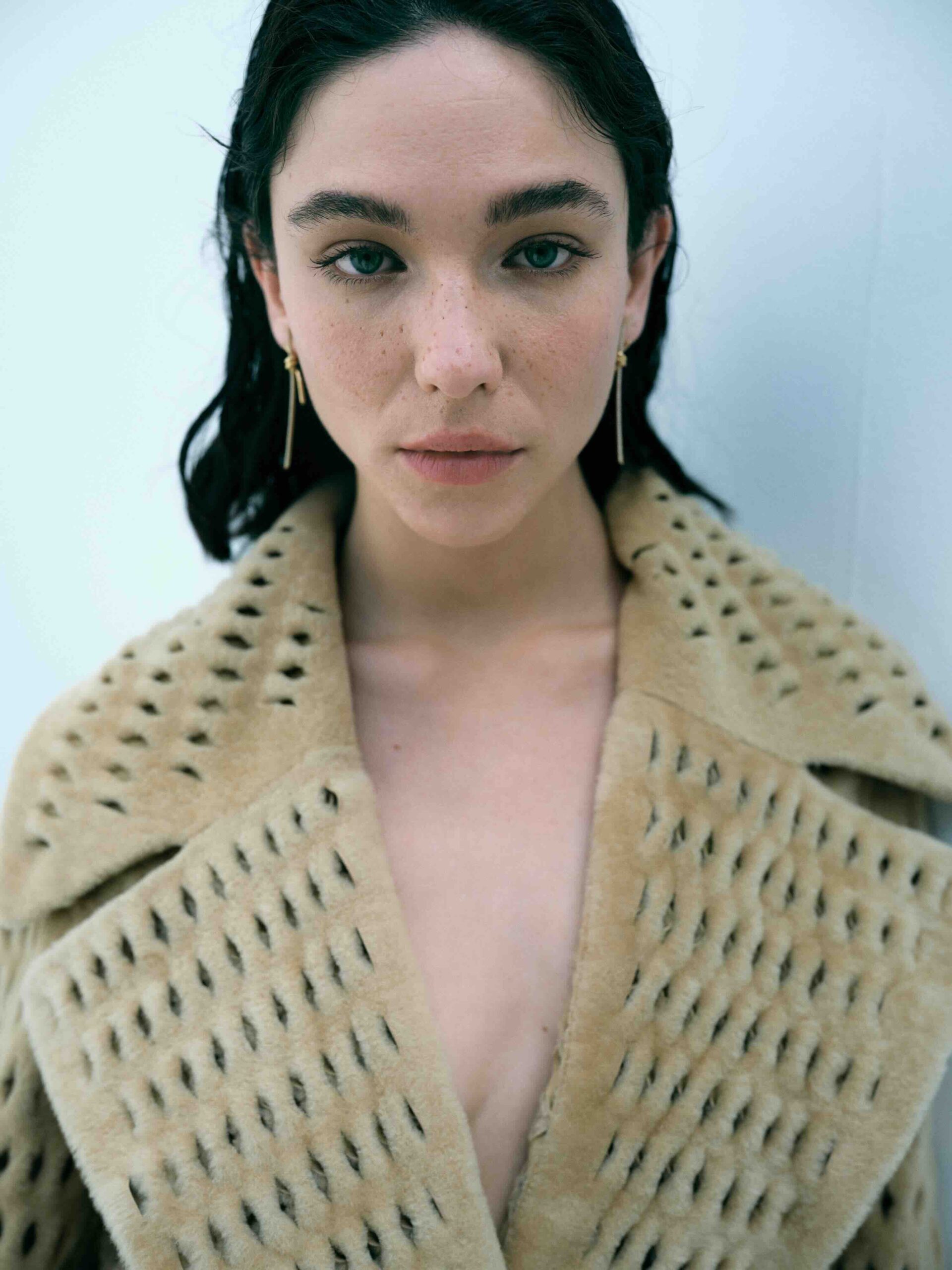
“I trust my instincts, my gut, what my body tells me—I’ve learned to listen to myself more over time. But at the same time, I like having control over things, bringing order to the mess inside my head. Sometimes one version of me wins, sometimes the other. I still don’t know which one trips me up more.”
Read the full interview on Muse September Issue 66.
